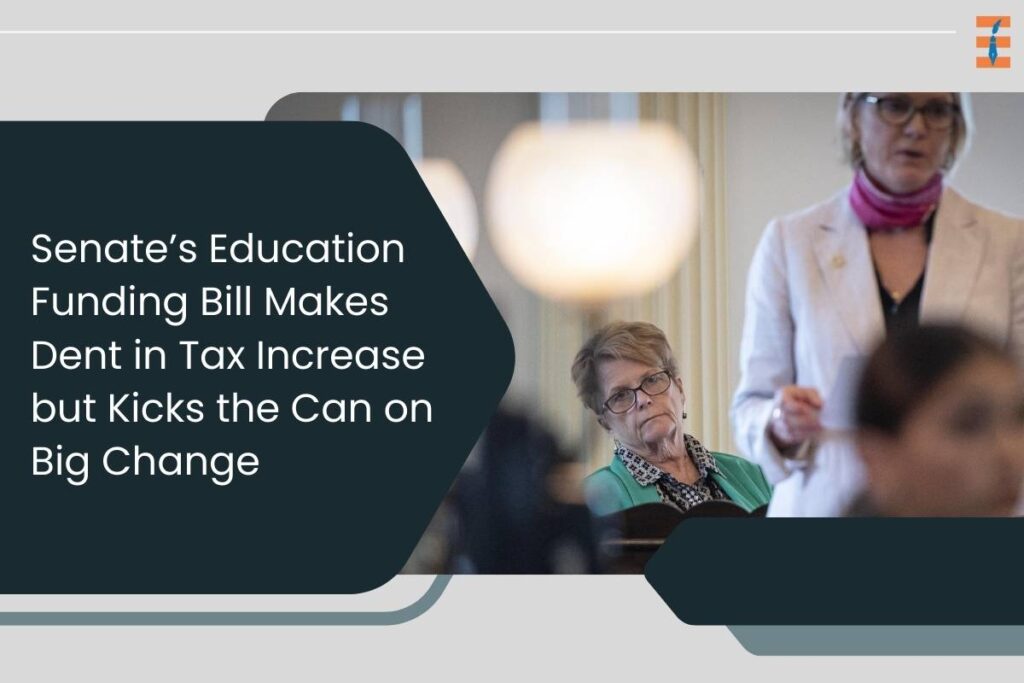Source-VTDigger
The Vermont Senate’s recent passage of the annual education funding bill has generated both relief and concern among residents as it promises to ease imminent property tax hikes but refrains from significant structural reforms in the education finance system.
The bill, commonly referred to as the “yield bill,” underwent amendments in the Senate’s finance committee, leading to a narrower focus on immediate financial adjustments rather than sweeping changes. The legislation aims to mitigate Vermonters’ property tax burden by utilizing a combination of increased revenue to the education fund and reductions in school spending. As a result, the average projected school property tax increase has been lowered from 14.2% to 12.5%, down from earlier forecasts nearing 20%.
Senator Ann Cummings, D-Washington, who spearheaded the Senate’s version of the bill, acknowledged the desire for more substantial reductions in taxes but cited time constraints that hindered deeper financial restructuring efforts. The bill’s passage, however, is on shaky ground as Governor Phil Scott has signaled intentions to veto it without significant alterations.
Key amendments to the bill include leveraging a portion of the state’s budget surplus (approximately $25 million) to offset tax rates and introducing new taxes to the education fund, estimated to generate around $27 million in additional revenue next year. These measures, totaling $52 million, pale in comparison to the projected $182 million increase in education spending.
Senate’s Tax Adjustments and Future Planning in Education Finance
One notable tax adjustment is the Senate’s decision to double the proposed tax on short-term rentals to 3%, expected to yield $12 million in its inaugural year. Additionally, revisions to the “cloud tax” were made to target software taxes more precisely, particularly focusing on businesses.
The bill reinstates and lowers the “excess spending threshold,” penalizing districts with higher spending by reducing the threshold from 20% above the state average to 16%, constituting a significant cost containment provision.
Rather than implementing radical finance changes immediately, the Senate opted to establish an education finance study committee comprising lawmakers, education experts, and tax professionals. This committee, slated to work through the summer, will delve into crucial aspects such as school size, funding models, consolidation strategies, spending caps, and local autonomy.
Despite adjustments to the Common Level of Appraisal (CLA) aimed at moderating local tax rate fluctuations, concerns persist regarding the bill’s postponement of the “commission on the future of public education.” Critics argue that prioritizing funding tweaks over broader education system assessments risks overlooking systemic issues.
Diverse Perspectives Shape Debate Over Vermont’s Education Funding Bill
Senator Alison Clarkson, D-Windsor, criticized the decision, stating, “I think this puts the cart before the horse.” Similarly, Sen. Ruth Hardy, D-Addison, emphasized the need for broader participation in education reform discussions.
Conversely, Sen. Randy Brock, R-Franklin, advocated for immediate financial interventions to alleviate taxpayer burdens, emphasizing the urgency of halting financial losses within the current system.
The Senate’s education funding bill reflects a delicate balancing act between short-term tax relief and deferring comprehensive reforms, highlighting ongoing tensions surrounding education finance in Vermont’s legislative landscape. As the bill navigates potential revisions and gubernatorial scrutiny, its ultimate impact on Vermonters’ education costs remains a subject of intense debate and negotiation in the state’s political arena.










